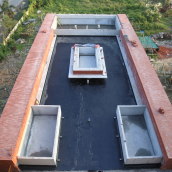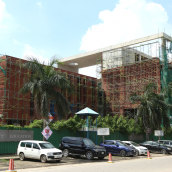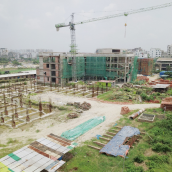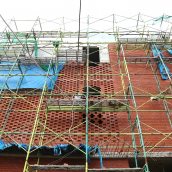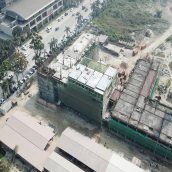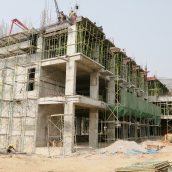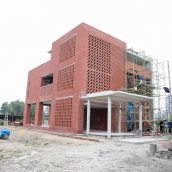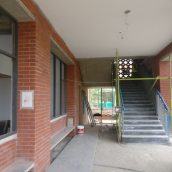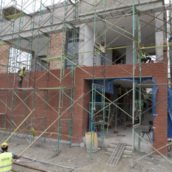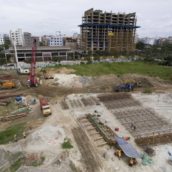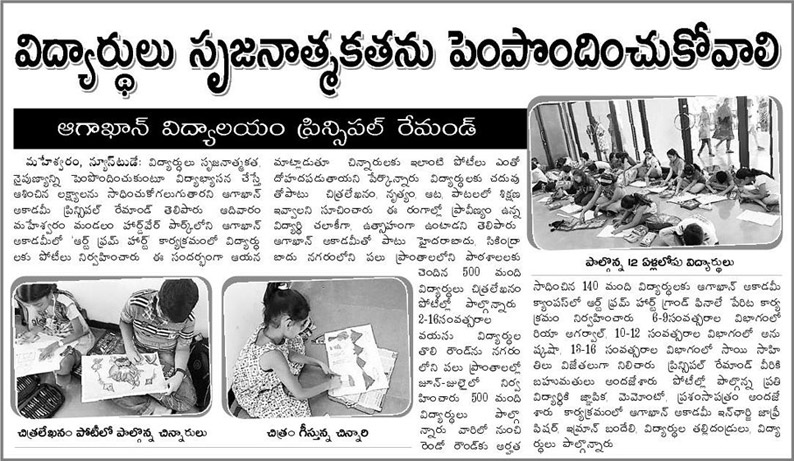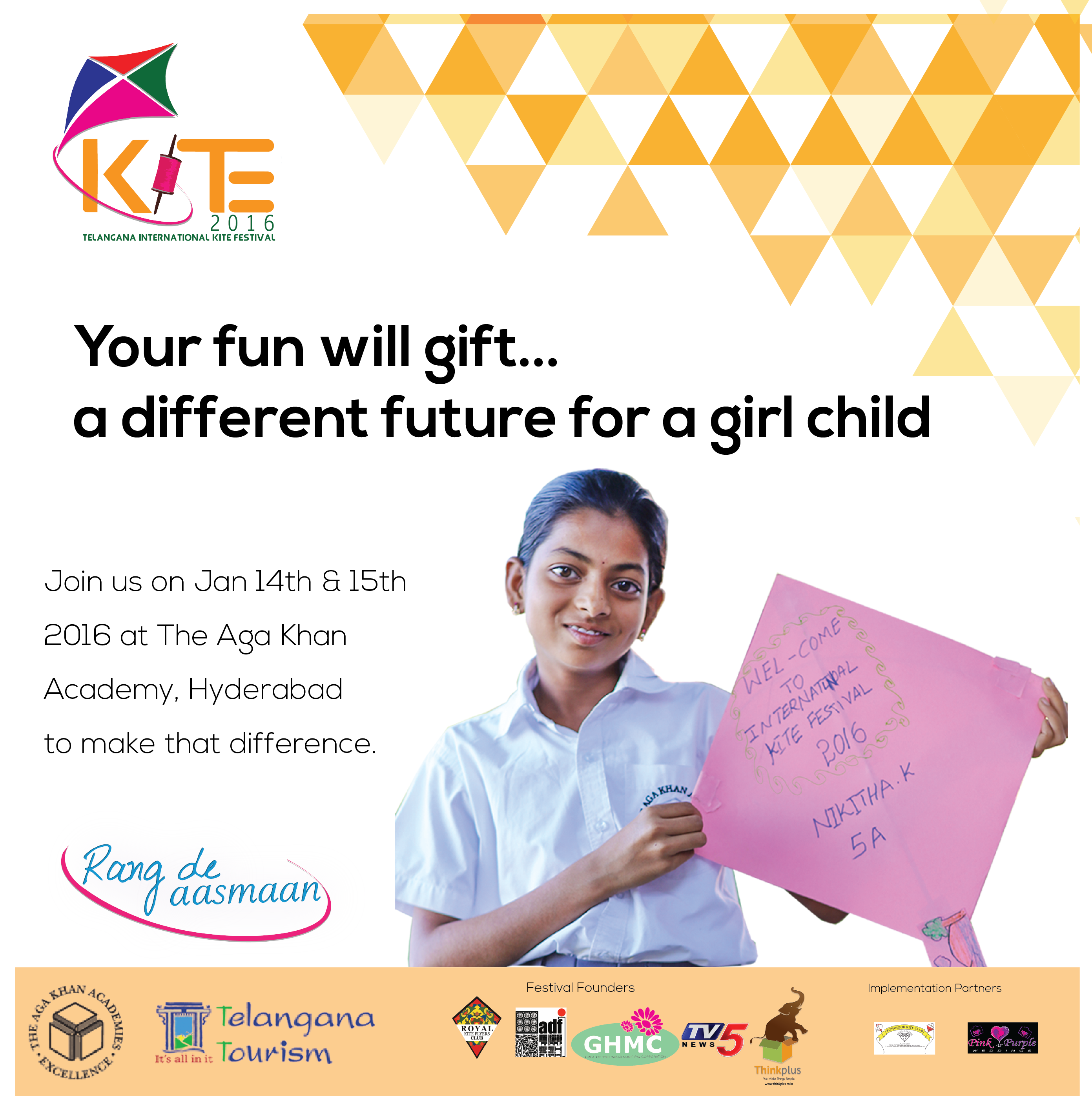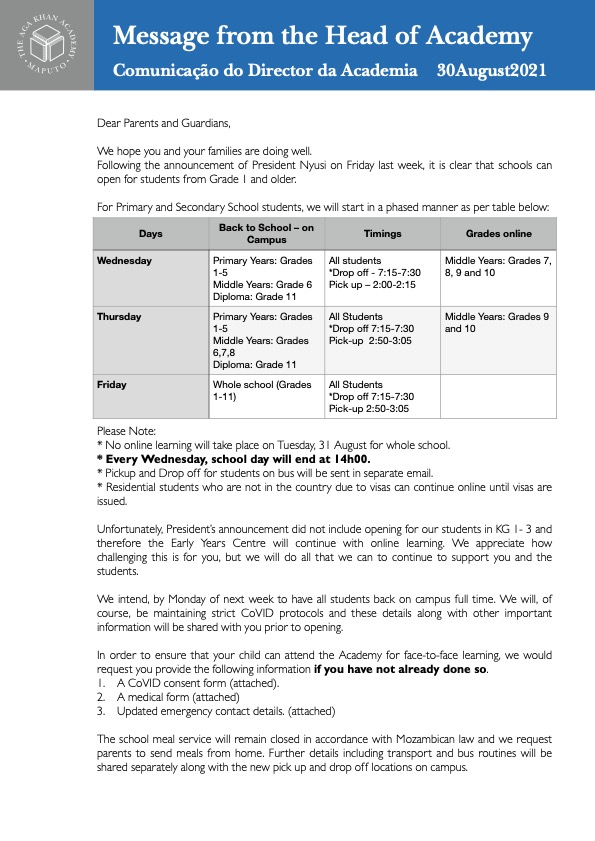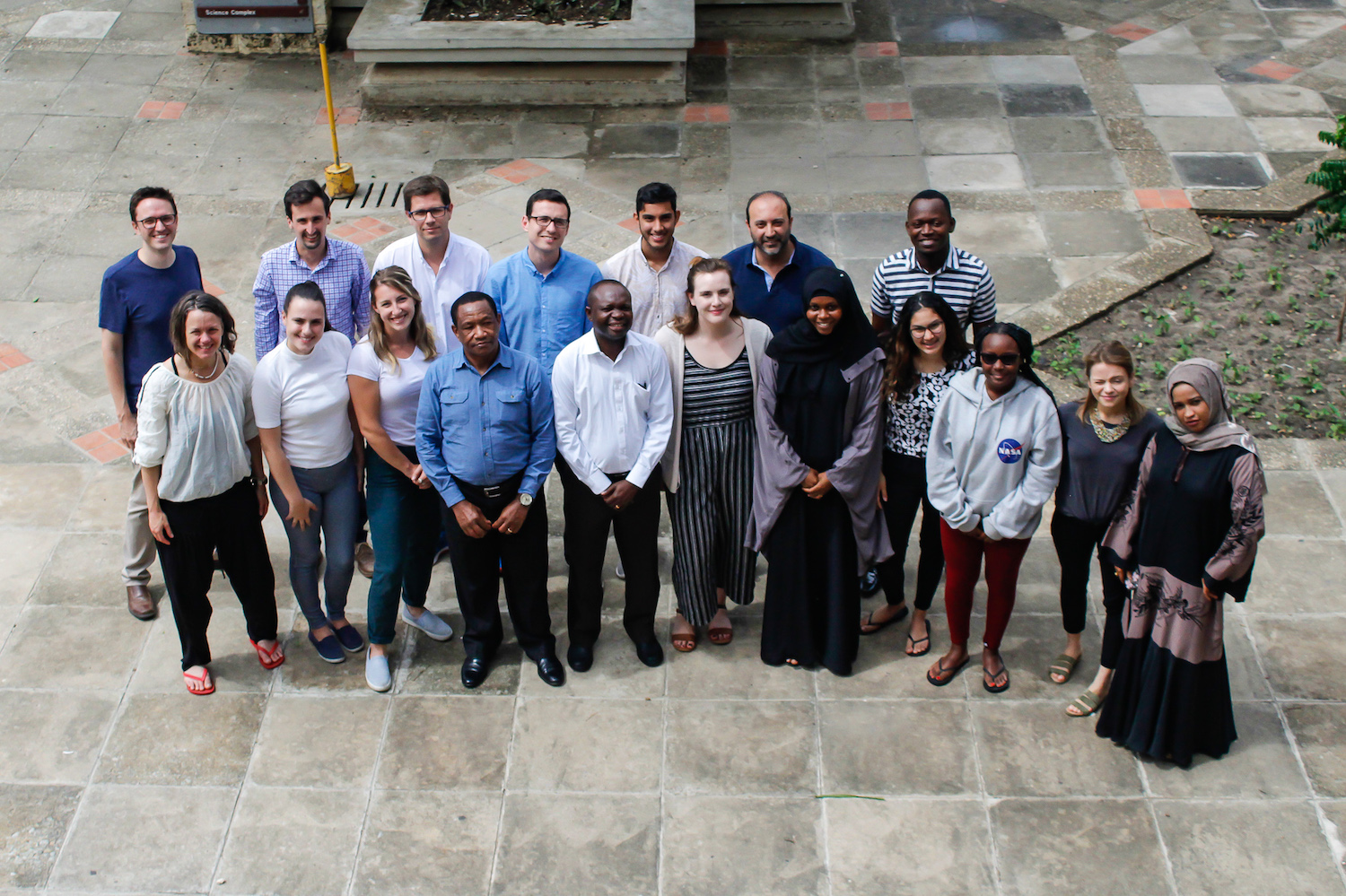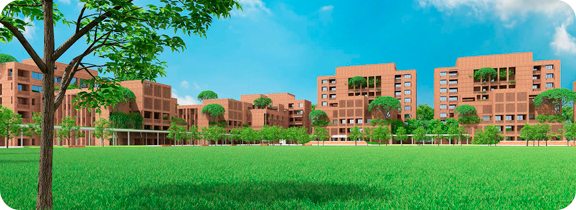
AKA Dhaka Campus Construction Diary
Construction of the Aga Khan Academy Dhaka's award-winning new campus is underway. Visit this page regularly to see how construction is progressing.
December 2019
Click here to see the December 2019 construction photo gallery.
November 2019
Click here to see the November 2019 construction photo gallery.
October 2019
Click here to see the October 2019 construction photo gallery.
September 2019
Click here to see the September 2019 construction photo gallery.
August 2019
Click here to see the August 2019 construction photo gallery.
July 2019
Click here to see the July 2019 construction photo gallery.
June 2019
Click here to see the June 2019 construction photo gallery.
January 2019
Click here to see the January 2019 construction photo gallery.
December 2018
Click here to see the December 2018 construction photo gallery.
November 2018
October 2018
Click here to see the October 2018 construction photo gallery.
September 2018
Click here to see the September 2018 construction photo gallery.
August 2018
Click here to see the August 2018 construction photo gallery.
July 2018
Click here to see the July 2018 construction photo gallery.
June 2018
Students build organic farm
A group of Ismaili students from Afghanistan and Tajikistan made the most of a difficult situation when they were unable to return home from the Aga Khan Academy in Hyderabad during the Covid-19 pandemic. With the abundance of spare time they were suddenly given, the students planned and implemented an organic farm on the school grounds.

Enrichment programmes
All enrichment programmes held at the Aga Khan Academy Maputo, every Tuesday and Thursday, will end on Friday, 1 December 2023. Pick-up time for the aforementioned days will be at 2:45 pm. Roller skating and robotics lessons will continue until 8 and 11 of December, respectively. For more information, please contact the school secretaries.
Students improve their Creativity
Students empowered with creativity and skills can achieve their goals, contended Mr Raymond, Principal, the Aga Khan Academy. On Sunday, the Aga Khan Academy Hyderabad, located in Maheswaram Mandalam, Hardware Park, organised a competition for students called Art from Heart. On this occasion, Mr Raymond claimed that such competitions will help students in developing creativity. He also advised that students need to be trained in activities like drawing, music, sports, dance and so on, along with studies. These skills make students active and enthusiastic learners.
About 500 students from various schools in Secunderabad and Hyderabad had participated in the preliminary rounds which were conducted in the months of June and July. The age group targeted was between 2 to16 years.
Out of 500 participants, 140 students qualified for the next round. These students took part in the grand finale event of Art from Heart, organised on the campus of the Aga Khan Academy Hyderabad.
Rhea Agarwal in 6-9 years age group, Anushka Shaw in 10-12 years age group and Sai Sahiti in 13-16 years age group were the winners. The prizes were given away by the Principal, Mr Raymond. Each participant received a trophy, a memento and a certificate. In this event, the head of the the Aga Khan Academy Hyderabad, Dr Geoffery Fisher, Imran Bandeali, students and parents took part.
Read the original article:
Financial aid for the 2025-26 academic year
The Aga Khan Academy Hyderabad is now accepting applications for financial aid for the upcoming academic year starting in August 2025. All new and existing students applying for financial aid must submit their application form and other relevant documents by 31 March 2025. Parents/Guardians are requested to adhere to the specified timeline. For further information/queries, please reach out faapplication@agakhanacademies.org.
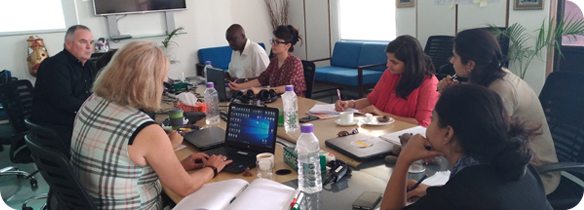
Teacher Professional Development
Promoting excellence in teaching and learning, both on campus and more broadly, is a fundamental goal of the Aga Khan Academies. Each Academy has a Professional Development Centre (PDC), which strengthens the profession of teaching in the region by investing substantially in teachers’ professional development.
Developing strength in teaching
We identify and develop teachers of the highest quality who are committed both to the all-round development of young people and to their own professional growth as excellent teachers.
Our PDC supports excellence in teaching by promoting best practices in teaching and learning. We provide ongoing, collaborative training for Academy faculty as well as outreach programmes for teachers and head teachers from neighbouring government, private and not-for-profit schools.
Our faculty members also have the opportunity to collaborate with colleagues across the globe and to teach abroad within the Aga Khan Academies network.
Strengthening curriculum and community
Through our professional development provision, we help create a professional community of competent, well-resourced teachers.
These teachers will continue to support and collaborate with one another on materials development, by sharing best practices, and in establishing diverse academic, cultural and social projects.
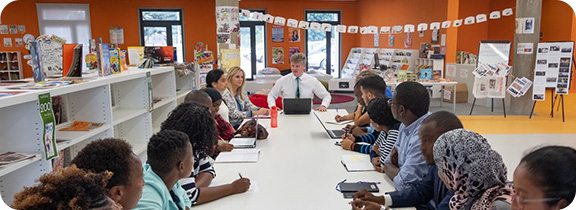
Teacher Professional Development
Promoting excellence in teaching, both on campus and more broadly, is a fundamental goal of the Aga Khan Academies. Each Academy has a Professional Development Centre (PDC), which strengthens the profession of teaching in the region by investing substantially in teachers’ professional development.
Developing strength in teaching
We identify and develop teachers of the highest quality who are committed both to the all-round development of young people and to their own professional growth as excellent teachers.
Our PDC supports excellence in teaching by promoting best practices in teaching and learning. We provide ongoing, collaborative training for Academy faculty as well as outreach programmes for teachers and head teachers from neighbouring government, private and not-for-profit schools.
Our faculty members also have the opportunity to collaborate with colleagues across the globe and to teach abroad within the Aga Khan Academies network.
Strengthening curriculum and community
Through our professional development provision, we help create a professional community of competent, well-resourced teachers.
These teachers will continue to support and collaborate with one another on materials development, by sharing best practices, and in establishing diverse academic, cultural and social projects.

